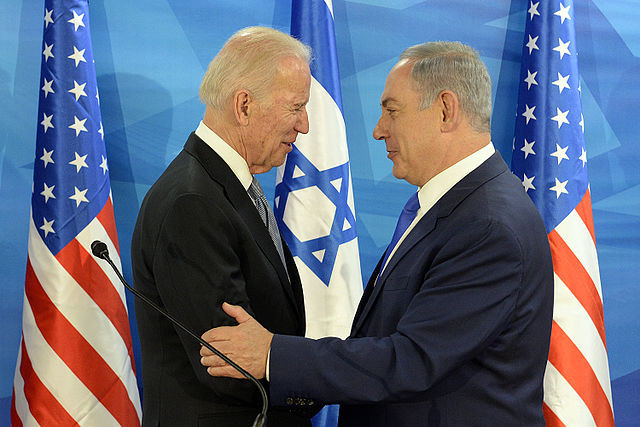Israeli Prime Minister Benjamin Netanyahu embarked on a significant trip to Washington on Monday, leaving behind a nation embroiled in a relentless conflict with Hamas in the Gaza Strip. This visit comes just a day after President Joe Biden announced his decision not to seek a second term, creating a ripple of political uncertainty.
Before his departure, Netanyahu emphasized the enduring alliance between Israel and the United States, stating, "In this time of war and uncertainty, it's important that Israel's enemies know that America and Israel stand together today, tomorrow, and always."
Netanyahu is scheduled to address both houses of the U.S. Congress on Wednesday and will have a private meeting with President Biden later in the week, contingent on Biden's recovery from a recent COVID-19 infection. "This will be an opportunity to thank him for the things he did for Israel in the war and during his long and distinguished career in public service," Netanyahu said. "It will also be an opportunity to discuss with him how to advance in the critical months ahead the goals that are important for both our countries."
Additionally, Netanyahu is expected to meet with Vice President Kamala Harris, who is currently seeking the Democratic Party's presidential nomination. This visit is particularly crucial given the heightened tensions between Washington and Tel Aviv over Israel's military actions in Gaza following Hamas' unprecedented October 7 attack.
Netanyahu's invitation to address Congress was orchestrated by the Republican leadership, who have accused President Biden of insufficient support for Israel during its war with Hamas. The conflict has resulted in significant casualties, with over 1,200 Israelis killed and approximately 240 people taken hostage by Hamas. Conversely, the offensive in Gaza has led to over 39,000 Palestinian deaths, according to health officials in the Hamas-run territory.
The backdrop of Netanyahu's visit includes a recent opinion from the International Court of Justice in The Hague, which declared Israel's occupation of Palestinian territories illegal. There is mounting pressure on Netanyahu from the U.S. to negotiate a deal that would secure the release of Israeli hostages in Gaza in exchange for a cessation of hostilities.
"Part of the goal [of the trip] is to try to show that with all that's been said, with all the protests, Netanyahu is still the leader, still has support, he still has strong relations with America," said Yonatan Freeman, an international relations specialist at the Hebrew University of Jerusalem.
The Israeli military has recently ordered Palestinians in Gaza to evacuate parts of an area designated as a humanitarian zone, citing intelligence that Hamas has embedded terrorist infrastructure there. This directive was followed by intense bombardment in the southern Gaza city of Khan Younis, resulting in at least 37 deaths, including women and children, according to the Hamas-run Gaza Ministry of Health.
Netanyahu's trip to Washington is fraught with political risks and opportunities. His fourth address to Congress, more than any other world leader, comes at a time when his words must carefully navigate the interests of multiple audiences: his far-right governing partners, the Biden administration, and the Republican Party.
"There are a few land mines and pitfalls on this trip," said Eytan Gilboa, an expert on U.S.-Israel relations at Bar-Ilan University. "He is thought of as a political wizard who knows how to escape from traps. I am not sure he still knows how to do that."
The Biden administration has maintained strong support for Israel but has grown increasingly concerned about the humanitarian impact of the war in Gaza and the lack of a postwar plan from Israel. Biden's decision to freeze the delivery of certain bombs earlier this year and the U.S.'s abstention from a United Nations Security Council vote calling for a ceasefire highlight the complexities of U.S.-Israel relations.
Netanyahu's visit also comes amid internal pressure, as he faces widespread protests in Israel over his handling of the war and the October 7 attacks. Critics argue that his primary focus is preserving his political power rather than advancing effective policies.
In a letter to Congress, 500 Israeli writers, scholars, and public figures expressed their dismay over Netanyahu's invitation, stating, "His only interest is preserving his own power. Does the United States Congress wish to support such a model of cynical and manipulative leadership in these times?"




